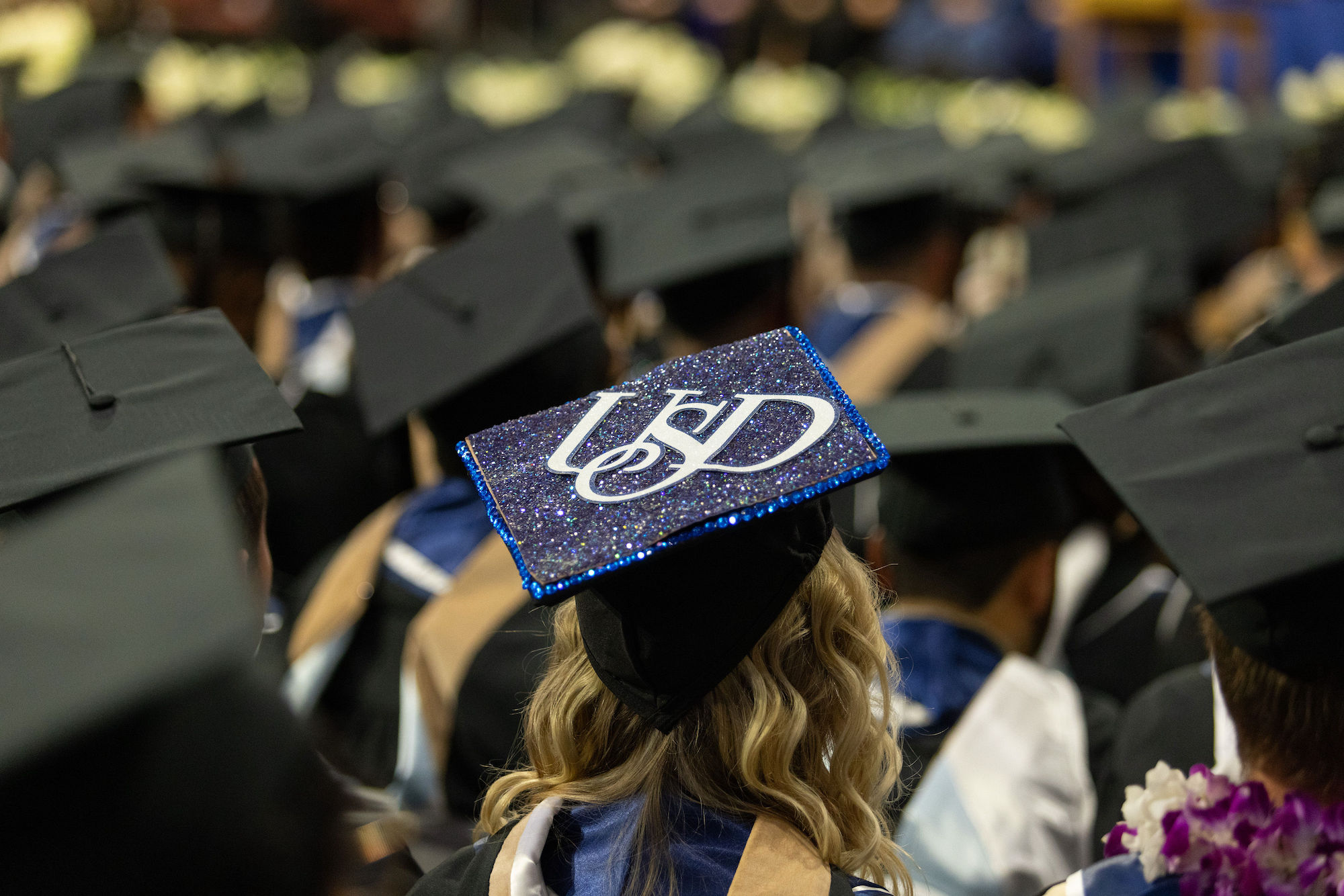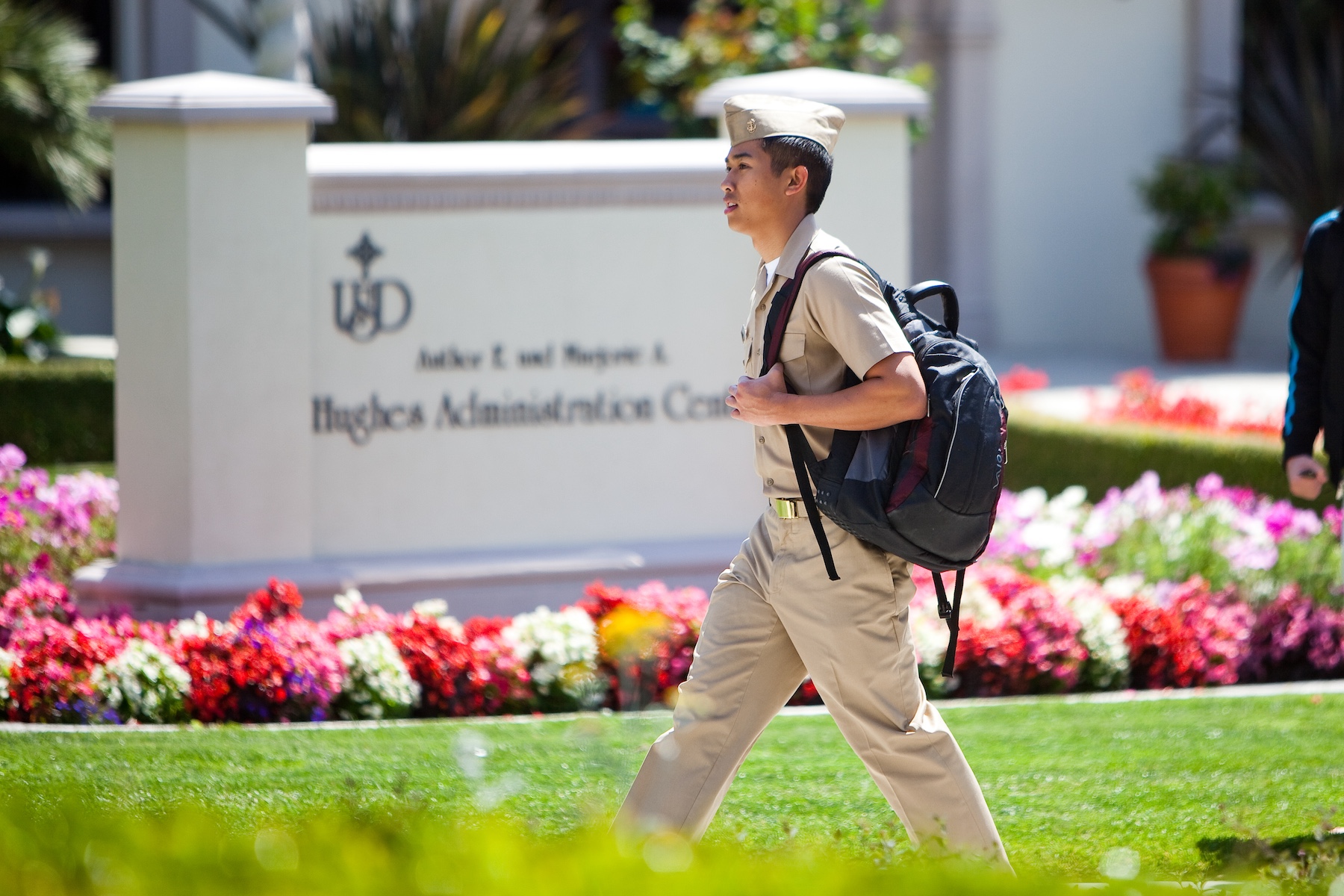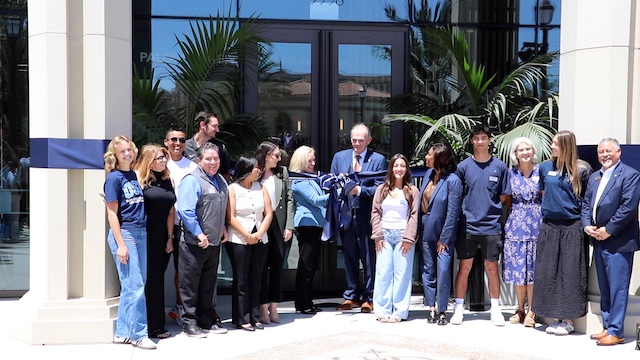Stellar Education, Community Leaders Selected For Educational Hall of Fame
The University of San Diego School of Leadership and Education Sciences (SOLES) will honor five individuals from the San Diego region who have made strides to improve the state of education on not only a local level, but nationally, as well.
The honorees will be acknowledged during the Remarkable Leaders in Education ceremony from 4 to 6 p.m., November 8, 2008, in Warren Auditorium in Mother Rosalie Hill Hall. They are a state legislator who placed education in the forefront of her time in office; a long-time educator who continues on his path of innovation despite a life-altering disease; a former newspaper man who pioneered a program that embedded newspapers into classrooms nationwide; a school administrator who saw beyond the traditional lines of education and created what has become a national model; and a community leader who carried a message of equal opportunity in education from the pulpit to the school board.
The 2008 class of the SOLES’ Remarkable Leaders in Education includes former California State Senator DeDe Alpert; Brian Bennett, a former principal and teacher who helped craft charter school development in the state; King Durkee, a former journalist who established the Newspapers in Education program; Larry Rosenstock, founder and CEO of High Tech High School; and Rev. George Walker Smith, who changed the face of a local school board.
Alpert served in the California State Legislature from 1991 to 2004 and is considered a foremost expert on public education. During her time in office, Alpert chaired the State Senate Appropriations Committee and the Joint Committee on the Master Plan for Education. She was instrumental in the passing of several landmark laws, including the creation of a long-term blue-print for improving California’s educational system from pre-K through college, introduction of four measures to reform the state’s system of categorical education funding, and a $600 million public library construction and renovation bond act.
When Rosenstock founded High Tech High, a public charter school focusing on integrating education and technology, in 1998, he caught the attention of the national media. Forbes Magazine credited him with taking the first step “to reverse America’s failure at mass education.” The school integrates technical and academic education to prepare students for post-secondary education in both high technology and liberal arts fields. High Tech High has expanded to include a middle school, High Tech High International, High Tech High Arts and Media Arts, as a well as a graduate school of education.
Bennett can be credited with helping to forge a bridge between area school districts and charter schools. The former teacher and principal is currently a consultant with the National Association of Charter School Authorizers. In this role, he provides assistance with oversight and policy development for the California Department of Education, the Los Angeles Unified School District and other authorizers in the western United States. He was the first director of the Office of School Choice at the San Diego Unified School District, which coordinated oversight for 34 charter schools in the district. Despite being diagnosed with amyotrophic lateral sclerosis, known as Lou Gehrig’s disease, two years ago, Bennett is still active in the charter school movement.
Durkee worked for half a century as a journalist in California and Utah. He began his career as a reporter, feature writer and editor, and was later named deputy editor of the San Diego Union. He later became director of educational services for Copley Newspapers. He retired from that job in 1989, but his impact is present today. Not so much for what he brought to readers on a daily basis, but for what he brought to classrooms across the nation. Durkee helped start the Newspaper in Education program in 1961, a cooperative effort between schools and newspapers to promote the use of newspapers as an educational resource. Last year, more than 4.8 million newspapers were provided for free to more than 900 area classrooms, according to the San Diego Union-Tribune. Mr. Durkee died earlier this year at the age of 89.
Rev. Smith is a symbol of history in San Diego. In 1963, he became the first African American to hold public office in San Diego County as a member of the San Diego Unified School District. He served four terms on that board, from 1963 to 1979, and led the board seven times as president or vice-president. A Presbyterian minister, Rev. Smith has influenced educational policy in the K-12 system and higher education. He has held leadership positions with the California School Boards Association, the San Diego Community College District Board of Trustees, California Junior College Association Committee on Student Personnel, and the University of California Overseers Advisory Board. On a national level, he was president of the Council of Great City Schools and the National School Boards Association, member of the White House Conference on Children and Youth, and the White House Committee on Education and Arts, among others. Rev. Smith co-founded what is now the McGill School of Success kindergarten charter school.
This is the second class to be inducted in the Remarkable Leaders honors program. Photos of the program recipients line the walls of SOLES building. The first class of honorees included: Cherie Sevick, who helped to shape the Lanterman Act for Developmental Disability; Roger Revelle, who was instrumental in the development of the University of California, San Diego; Hector Lopez, vice-president of counseling and students services for Imperial Valley College; Ellen Browning Scripps, founder of the world-renowned Scripps Institute of Oceanography; Thomas Watts, who founded the Elementary Institute of Science and gave students a new appreciation for science and technology; and Mary Catherine Swanson, founder of the Advancement Via Individual Determination (AVID) program, that is in more than 3,500 schools in 45 states and 15 countries.
The Remarkable Leaders in Education program was started to honor local individuals who have made a significant impact on student learning from pre-kindergarten through college. Their impacts and contributions can be felt beyond the borders of San Diego and have had a national, and in some cases international, effect on the field of education.
About the University of San Diego
The University of San Diego is a Catholic institution of higher learning chartered in 1949; the school enrolls approximately 7,500 undergraduate and graduate students and is known for its commitment to teaching, the liberal arts, the formation of values and community service. The inauguration of the Joan B. Kroc School of Peace Studies brings the university’s total number of schools and colleges to six. Other academic divisions include the College of Arts and Sciences and the schools of Business Administration, Law, Leadership and Education Sciences, and Nursing and Health Science.
###
About the University of San Diego
Strengthened by the Catholic intellectual tradition, we confront humanity’s challenges by fostering peace, working for justice and leading with love. With more than 8,000 students from 75 countries and 44 states, USD is among the Top 20 Best Private Schools for Making an Impact according to The Princeton Review. USD’s eight academic divisions include the College of Arts and Sciences, the Knauss School of Business, the Shiley-Marcos School of Engineering, the School of Law, the School of Leadership and Education Sciences, the Hahn School of Nursing and Health Science, the Joan B. Kroc School of Peace Studies, and the Division of Professional and Continuing Education. In 2021, USD was named a “Laudato Si’ University” by the Vatican with a seven-year commitment to address humanity’s urgent challenges by working together to take care of our common home.



